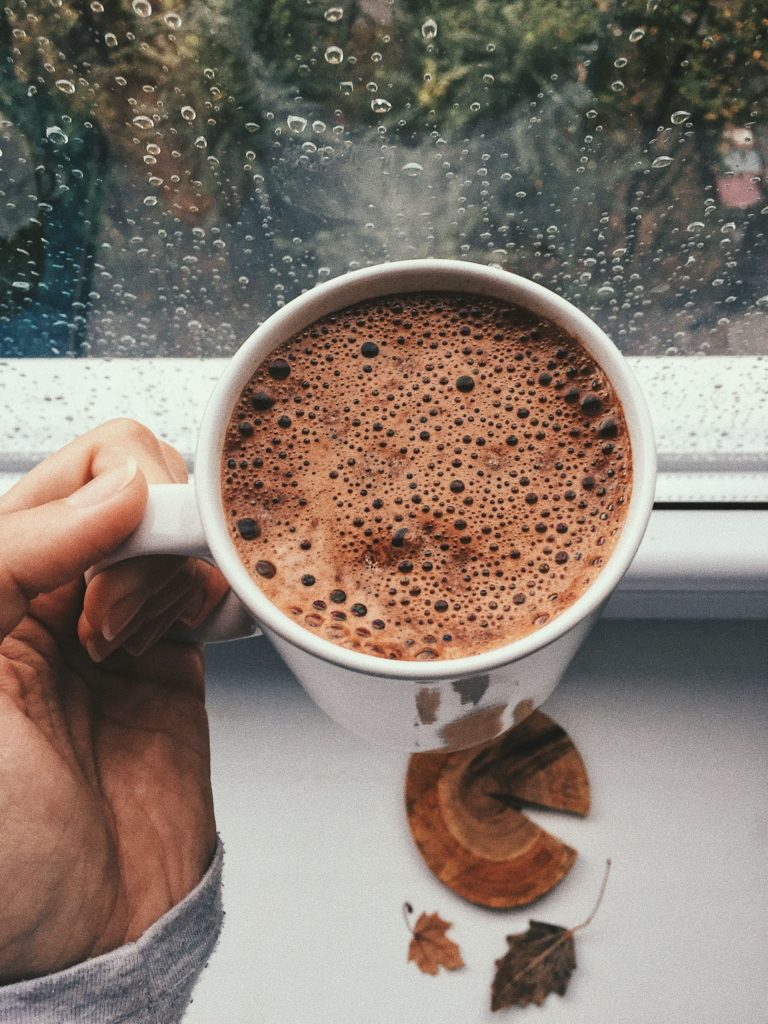Do you roll out of bed and head straight to the kitchen for a cup of coffee to wake you up?
The early morning coffee seems to be a common denominator that transcends age, culture, and gender, pulling us all together after we roll out of bed. How else are we supposed to function on full-throttle, running errands, prepping for the “9 to 5 grind” and getting the kids ready? We need a pick-me-up.
Coffee’s biggest pull is that the caffeine helps you stay awake and alert. However, did you know that every time you consume coffee, your adrenal glands produce cortisol, the main stress hormone? With consistent caffeine intake, you could be forcing your adrenal glands to overproduce the hormone, causing adrenal fatigue, and wearing you out. While we initially feel that energy spike after a cup of java, the more we depend on it, the more we drain our adrenal reserves.

What Is Adrenal Fatigue?
Overproducing cortisol throws off its natural cycles and concentrations in the body throughout the day. These elevated levels of cortisol can even lead to weight gain, anxiety, depression, sleep issues, and even problems with digestion.
Telltale signs of adrenal exhaustion are sleep trouble, brain fog, irritability, focusing or memory issues and extreme cravings for sugar or carbohydrates; Think stress eating.
Most of us reach for our first cup of coffee immediately after waking up. However, your body just so happens to produce the most cortisol in the morning, typically 20 to 30 minutes after waking up.
Give your body a breather and your cortisol levels a chance to decrease by enjoying a mid-morning cup of coffee instead, at least 90 minutes after you’ve woken up. This should help your cortisol levels to stay more stable, leaving you feeling healthier and less grumpy on a daily basis.
Additionally, remember that caffeine is a stimulant and can stay in your body for hours. If you are looking to improve your sleeping patterns, consider a no-caffeine rule past 2 p.m. It will give your body time to adjust to the artificial energy levels and help you sleep easier at night. If you sleep more soundly at night, you shouldn’t need to rely as much on the energy spike you get from the caffeine, which will in turn allow you to sleep better and reduce your cortisol levels in general.

A Healthy Alternative
Instead of reaching for the coffee, you can go with a natural energy booster that won’t spike your cortisol levels. Cacao has a longer, more sustained energy without the crash. It’s packed with health benefits and is a natural mood booster as well, plus it’s delicious. Of course, the less milk and sugar byproducts the better, so perhaps that Hershey’s candy bar isn’t the best alternative. However, drinking or snacking cacao can help you feel energized all day long if you’re trying to substitute for your coffee.
If you would like to learn more about your diet, and the small changes you can make to see huge improvements in your health, sign up for Your Daily™. Your Daily™ is a personalized health coach that offers you bite-sized daily lessons and activities to help you improve your diet, your sleep schedule, and your stress management techniques.
It’s aimed at the busy, burnt out woman who is always running from point A to point B, trying not to let anyone down, and sacrificing her own health to achieve everything she always dreamed of (be it a happy family, or a successful business).
If that sounds like you, join our community of like-minded souls who have decided it’s time to put their health first (and quite right too!). Let us support you on your journey from dealing to healing.
Read next: When stress keeps you up and insomnia stresses you out





